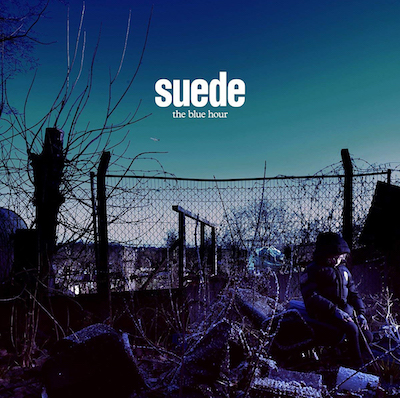At a recent album launch gig for The Blue Hour, Suede made the bravura decision to play only songs from their most recent three albums, all released since their emphatic comeback in 2010. If those initial reformation gigs exorcised some of the demons that saw the strange decline of the band in the late 90s, the albums Bloodsports and Night Thoughts were proof that they had much more to say. Now that accidental trilogy comes to a close with The Blue Hour, an album that ought to be regarded as a creative peak for Suede, easily reaching the heights of their 90s best.
Musically, Suede’s decision to ignore the demands of radio and Spotify algorithms seems have been a great unshackling. With the core songwriting duo of Brett Anderson, Richard Oakes and Neil Codling all working together rather than sharing ideas remotely, The Blue Hour is a deeply focussed listen, a sumptuous adventure from the dramatic, choral opener ‘As One’ onwards.
In ‘Life Is Golden’ Suede have written a song that really ought to be regarded as one of the best of their entire career. ‘Chalk Circles’ is a brilliant and audacious, synths and strings conjuring something terrible happening at Avebury during a solstice drum circle – a bleaker echo of brilliant 1996 track ‘Europe Is Our Playground’. ‘Don’t Be Afraid If Nobody Loves You’ and ‘All The Wild Places’ are soaring histrionic pop songs, for of course there’s emotion. If anything, Anderson’s muse and the accompanying music seem to become more fraught and full of feeling as the band age – the key lyrical theme on this album is of a lost child and the anxiety of the parent. And given that The Blue Hour was written in parallel with Anderson’s deeply affecting memoir Coal Black Mornings, it’s hard not to make the connection that the lost child is frequently Anderson himself, and that the album is a meditation on the fact that the adult self is always prisoner to the childhood self, with its anxieties and experiences of trauma.
With the highly unusual theme of exploring the deathly grimness and dangers of the countryside to which Anderson has recently moved, The Blue Hour is a record quite unlike any other. Suede remain one of the most distinctive bands that this country has produced in the past few decades, something that unfortunately counts against them. It often seems that having such a distinctive sound – in terms of aesthetic, vocals, and sonic palette – can be a disadvantage when the power of the algorithms against which Suede have rebelled seems to be heralding in an era of beige indifference, shaped primarily by the global hegemony of US popular and celebrity culture. Along the flattened-badgers and soggy-tissue strewn highways and lay-bys of rural England, Suede conjure up a thrillingly twisted antidote.



